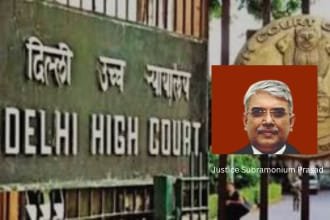In a significant development for the Indian judiciary, the President of India, Droupadi Murmu, has officially notified the appointment of Justice BR Gavai as the next Chief Justice of India (CJI). Justice Gavai will assume office on May 14, 2025, following the retirement of incumbent CJI Justice Sanjiv Khanna. This marks a momentous occasion, as Justice Gavai will become *only the second Dalit judge in India’s history to ascend to the nation’s highest judicial post.
This appointment is not only a testament to Justice Gavai’s judicial acumen but also a landmark moment for inclusivity and representation in India’s apex court. In this article, we delve into Justice Gavai’s career, the significance of his appointment, and what this means for the future of the Indian judiciary.
Who is Justice BR Gavai?
Born on November 24, 1961, Justice Bhushan Ramkrishna Gavai hails from Maharashtra. He completed his law degree from Government Law College, Mumbai, and enrolled as an advocate in 1985. Over the years, he built a reputation as a competent lawyer, especially in constitutional, civil, and service matters.
Justice Gavai was elevated as a judge of the Bombay High Court in 2003 and went on to serve the judiciary with distinction for over 16 years. In May 2019, he was appointed as a judge of the Supreme Court of India. Over the past six years at the apex court, he has authored several significant judgments and has played a crucial role in shaping constitutional and civil jurisprudence.
Career Highlights and Landmark Judgments
Justice Gavai’s tenure at the Supreme Court has been marked by clarity in legal reasoning and a strong commitment to justice. Some of the notable cases he has been involved in include:
- Right to Protest and Public Order: Justice Gavai was part of the bench that clarified the balance between the right to protest and the need to maintain public order, particularly during the anti-CAA protests.
- Environmental Jurisprudence: He has been active in adjudicating environmental cases, focusing on sustainable development and balancing economic growth with ecological preservation.
- Criminal Law Reforms: Justice Gavai has also emphasized the need for reform in criminal procedure to ensure timely justice, especially for undertrial prisoners.
His judgments often reflect a deep understanding of the Constitution and a concern for the marginalized sections of society—a perspective likely to shape his tenure as CJI.
Justice Gavai as the Second Dalit CJI
Justice Gavai’s appointment is historically significant because he is only the second Dalit judge to become the Chief Justice of India. The first was Justice KG Balakrishnan, who served as the 37th CJI from 2007 to 2010.
This appointment is a step forward in making the Indian judiciary more inclusive and representative. While the judiciary is meant to be impartial and independent, representation from marginalized communities sends a powerful message about accessibility and diversity within India’s democratic institutions.
Tenure and Key Challenges Ahead
Justice Gavai is expected to have a tenure of approximately six months, retiring in November 2025. Though brief, this period comes at a time when the Supreme Court is facing several critical challenges, including:
- Case Backlog: With over 70,000 pending cases, tackling judicial delay remains a top priority.
- Judicial Infrastructure: There is a need to strengthen lower courts and improve digital infrastructure.
- Independence of Judiciary: In recent years, concerns over judicial independence and the collegium system have gained traction. Justice Gavai’s role will be pivotal in maintaining transparency and credibility.
- Constitutional Challenges: The Supreme Court is currently hearing several important constitutional matters, including those related to the Waqf (Amendment) Act, freedom of speech, federalism, and electoral reforms.
Justice Gavai’s experience and balanced approach may provide the leadership required to steer the court through these complex issues.
Symbol of Social Mobility and Judicial Inclusivity
Justice Gavai’s ascent to the highest judicial office is also symbolic of social mobility. Coming from a background historically subjected to systemic discrimination, his elevation reinforces the belief in the transformative potential of the Constitution of India.
It also strengthens public faith in the judiciary’s commitment to justice for all, regardless of caste or class. His career trajectory—marked by merit, hard work, and integrity—is an inspiring story for aspiring lawyers from underprivileged communities.
What This Means for the Legal Community
The legal fraternity has welcomed Justice Gavai’s appointment with optimism. His administrative skills, grounded judgment, and collegial temperament are expected to bring greater consensus in judicial functioning.
Moreover, his focus on judicial accessibility, procedural reforms, and citizen-centric justice delivery may reflect in policy initiatives during his tenure. This is especially important in today’s rapidly changing legal landscape, shaped by digital courts, increasing public scrutiny, and global human rights concerns.
Conclusion
Justice BR Gavai’s appointment as the 52nd Chief Justice of India is a watershed moment for the Indian judiciary. As he prepares to take oath on May 14, 2025, the legal community and the nation look forward to a tenure defined by integrity, inclusivity, and constitutional commitment.
In a system where representation matters as much as judicial competence, Justice Gavai embodies both. His elevation signals not just personal achievement but progress toward a judiciary that reflects the pluralism of India.


